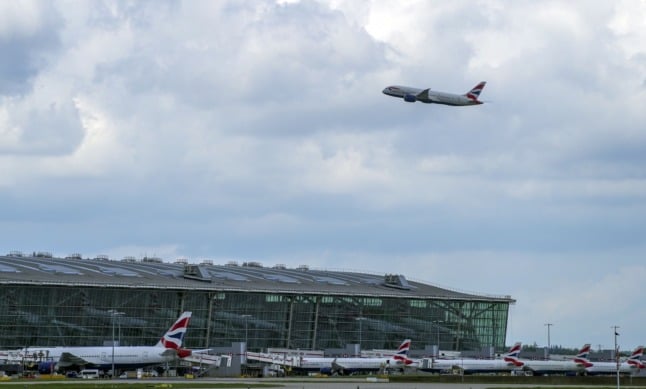The German Medical Association’s chief spoke out to advise against tourist travel to areas where the more contagious Delta variant of Covid-19 is circulating.
“Travel to regions that are particularly affected by the Delta variant should be avoided,” President Klaus Reinhardt told the Funke Media Group on Tuesday.
Germany is reopening its borders on Friday to non-EU nationals who have been fully vaccinated against Covid-19, ramping up the possibility of travel for many.
Currently, only those with exceptional reasons are allowed into the country.
But those coming from countries listed as ‘virus variant areas of concern’ will not be able to enjoy the new rules as entry bans will still apply.
Countries including the the UK and India are currently on the list of virus variant areas. Travellers who are allowed to enter Germany – such as residents and citizens – must go into quarantine for 14 days and cannot end their self-isolation early with a negative test even if they are fully vaccinated.
READ ALSO: Delta variant – how worried should Germany be about a new wave of cases?
The Our World in Data chart below gives an idea of Covid cases per million people in Germany compared to some variant risk countries and the US.
The RKI updates the list of risk countries regularly.
The Delta variant, which was first detected in India, is now spreading rapidly in some countries, including the UK. According to estimates by health specialists in the UK, it is anywhere between 30 percent and 100 percent more infectious than the previously dominant Alpha variant.
Reinhardt agreed with predictions from other experts that the Delta variant will also prevail over the Alpha variant in Germany in the medium term.
The Alpha variant was first detected in England and went on to fuel Germany’s second and third wave.
Currently Delta is estimated to count for about six to seven percent of new cases in Germany, and 90 percent of cases in Britain.
It can also be assumed that the number of infections will rise again in Germany at the end of the summer due to seasonal factors, said Reinhardt.
READ MORE:
- Germany to lift Covid travel warning for most countries from July
- What are the Covid-19 test requirements for entering Germany?
But whether there will be a fourth wave of the pandemic in Germany depends largely on the progress of the vaccination campaign. Currently, more than 30 percent of the population is fully jabbed and over half have received one dose.
Even if the number of infections rises exponentially again, it’s expected that there will be less severe courses of the disease because vulnerable groups in particular – such as the elderly and those with previous illnesses – are better protected by vaccinations.
However, with a view to pupils returning to classrooms fully after the summer holidays, people in Germany must “do everything they can to prevent a sharp rise in the number of infections, as is currently the case in the United Kingdom,” Reinhardt said.
He advised that all adults should take advantage of the vaccination offer in Germany, and also have the second dose in due course.
Reinhardt acknowledged that for many people, holidays are important for mental health after the stress of the past months. “It is necessary, however, to observe hygiene rules, even in the vacation resort,” he said.
On Tuesday the number of cases per 100,000 people in Germany within seven days dropped to 8.0, according to the RKI. A week ago, the incidence was 15.5.
A total of 455 new infections were reported within the last 24 hours, while, 77 deaths connected to Covid-19 were registered.



 Please whitelist us to continue reading.
Please whitelist us to continue reading.
Member comments